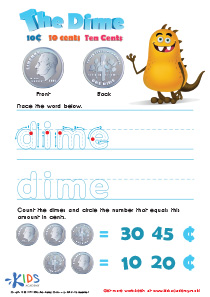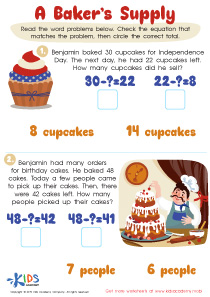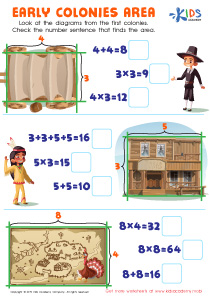Easy Geometry Quizzes for Ages 7-8
4 results
4 filtered results
Clear all filters4 filtered results
-
From - To
Introducing our "Easy Geometry for Ages 7-8" interactive assessment quizzes, tailored specifically for young learners embarking on their mathematical journey. These engaging quizzes are designed to test and reinforce geometry concepts in a fun and accessible way. With each quiz, children will encounter shapes, angles, and patterns, receiving immediate feedback to guide their learning process. Perfect for ages 7-8, our easy-to-navigate quizzes make learning geometry a joyful adventure. Watch as your child develops confidence and a solid foundational understanding of geometry, all while being entertained and challenged. Embark on this geometric exploration today and unlock your child's potential!
In today’s technologically advanced world, the importance of incorporating interactive tools in education cannot be overstated. One of the most engaging and effective ways to help children grasp the basics of mathematics is through Easy Geometry for Ages 7-8. These easy interactive quizzes are not just games; they are strategically designed educational tools that transform learning into a fun and rewarding experience for children.
Geometry, often perceived as challenging by young learners, becomes approachable and intriguing with these quizzes. At the tender ages of 7 and 8, children are at a crucial developmental stage where their cognitive skills are rapidly expanding. It is the perfect time to introduce them to the foundational concepts of geometry through interactive quizzes that cater specifically to their age group. The Easy Geometry for Ages 7-8 quizzes are tailored to match the learning capacity and interests of children in this age bracket, making geometry an enjoyable subject rather than a daunting challenge.
The quizzes cover a range of topics tailored to the curriculum for ages 7-8, including shapes, sizes, patterns, spatial understanding, and basic measurements, ensuring a comprehensive grasp of geometry at an early age. By engaging with these quizzes, children not only learn about geometric concepts but also develop critical thinking and problem-solving skills. The interactive nature of the quizzes encourages active participation, which is key to effective learning. Children get immediate feedback on their answers, which helps them learn from their mistakes and reinforces their understanding of the concepts.
Moreover, these Easy Geometry quizzes are designed with vivid colors, engaging characters, and intuitive interfaces to capture the attention of young learners. This visual and interactive approach caters to various learning styles, ensuring that every child, regardless of their preferred method of learning, finds the quizzes both accessible and enjoyable.
The benefits of using Easy Geometry for Ages 7-8 go beyond academic achievement. These quizzes also promote a positive attitude towards learning and mathematics. By making geometry fun, children are more likely to develop a lasting interest in the subject, which can lead to greater success in their future mathematical endeavors. Additionally, the quizzes are designed to be used both in the classroom and at home, offering flexibility to educators and parents in supporting the child’s learning journey.
Parents and educators can track progress through these interactive quizzes, which is crucial for identifying areas where a child may need further support. This data-driven approach allows for a more personalized learning experience, ensuring that each child can reach their full potential in understanding geometry.
In conclusion, Easy Geometry for Ages 7-8 provides an invaluable resource for young learners. By combining education with entertainment, these interactive quizzes ensure that children not only learn the essential principles of geometry but also enjoy the process. As we move further into a digital age, the use of such innovative educational tools will become increasingly important in fostering a love for learning and building a solid foundation in mathematics from an early age.











